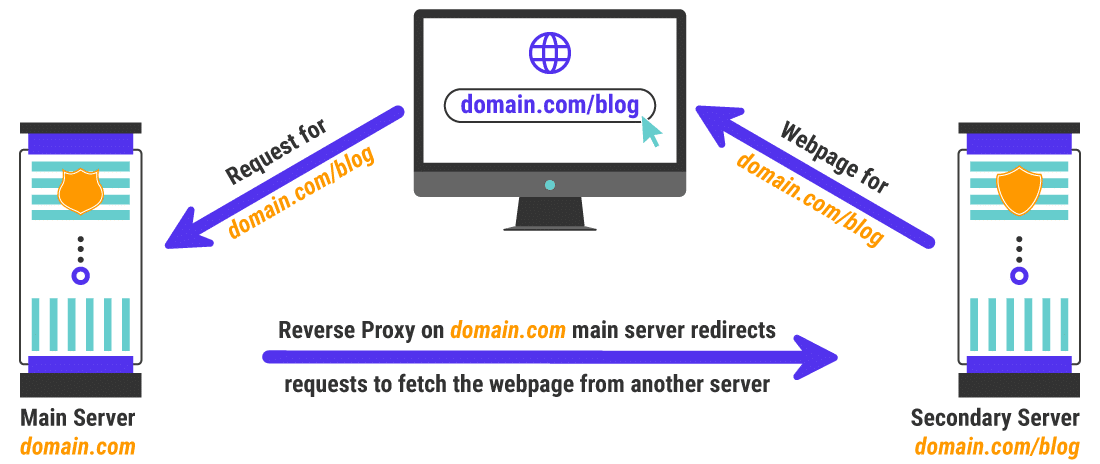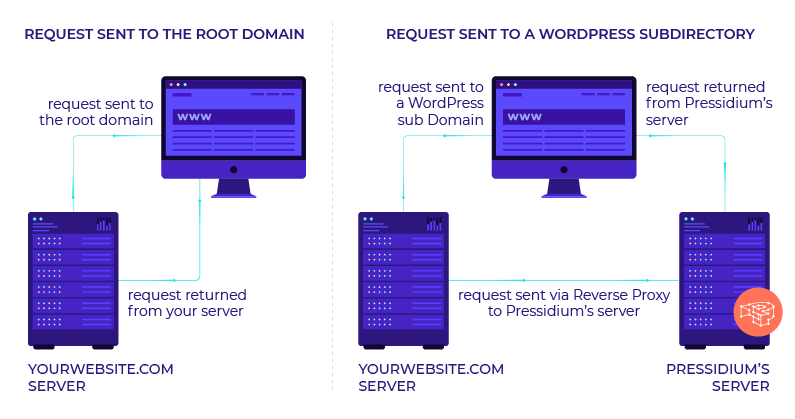Moz Q&A is closed.
After more than 13 years, and tens of thousands of questions, Moz Q&A closed on 12th December 2024. Whilst we’re not completely removing the content - many posts will still be possible to view - we have locked both new posts and new replies. More details here.
WordPress Sub-directory for SEO
-
Hi There,
I'm working on a WordPress site that includes a premium content blog with approx 900 posts.
As part of the project, those 900 posts and other membership functionality will be moved from the main site to another site built specifically for content/membership.
Ideally, we want the existing posts to remain on the root domain to avoid a loss in link juice/domain authority.
We initially began setting up a WordPress Multisite using the sub-directory option. This allows for the main site to be at www.website.com and the secondary site to be at www.website.com/secondary.
Unfortunately, the themes and plugins we need for the platform do not play nicely with WordPress Multisite, so we started seeking a new solution, and, discovered that a second instance of WordPress can be installed in a subdirectory on the server. This would give us the same subdirectory structure while bypassing WordPress Multisite and instead, having two separate single-site installs.
Do you foresee any issues with this WordPress subdirectory install? Does Google care/know these are two separate WordPress installs and do we risk losing any link juice/domain authority?
-
@himalayaninstitute said in WordPress Sub-directory for SEO:
WordPress can be installed in a subdirectory
I have done this a lot and I mean a lot what you want to do is set up a reverse proxy on your subdomain and this will allow you to not only bypass having to use multisite for subfolder but if you want to power it separately you can you do not have to it all. You should probably use your same server and power through Fastly our CloudFlare


once you set this up it is super easy to keep it running in your entire site will be much faster as a result as well
my response to someone else that needed a subfolder
https://moz.com/community/q/topic/69528/using-a-reverse-proxy-and-301-redirect-to-appear-sub-domain-as-sub-directory-what-are-the-seo-risksplease also look at it explained by these hosting companies is unbelievable easy to implement compared to how it looks and you can do so with Fastly or cloudflare in a matter of minutes
-
https://servebolt.com/help/article/cloudflare-workers-reverse-proxy/
-
https://support.pagely.com/hc/en-us/articles/213148558-Reverse-Proxy-Setup
-
https://wpengine.com/support/using-a-reverse-proxy-with-wp-engine/
-
https://thoughtbot.com/blog/host-your-blog-under-blog-on-your-www-domain
-
https://crate.io/blog/fastly_traffic_spike
*https://support.fastly.com/hc/en-us/community/posts/4407427792397-Set-a-request-condition-to-redirect-URL -
https://coda.io/@matt-varughese/guide-how-to-reverse-proxy-with-cloudflare-workers
-
https://www.cloudflare.com/learning/cdn/glossary/reverse-proxy/
-
https://gist.github.com/LimeCuda/18b88f7ad9cdf1dccb01b4a6bbe398a6
I hope this was of help
tom
-
-
@nmiletic The content section of the site requires a unique UI Design and other robust functionality, so having a separate theme/plugins in its own directory is going to be the way we go here. Thanks for your assistance!
-
@himalayaninstitute Have you thought about adding a page and making all of this new content a subpage? Or changing your permalink structure to include a category in the URL? You can then add all of these posts under that category and have the URL show up as www.example.com/category/page-or-post-name
-
The website at the subdirectory will be an online learning platform with a blog, online courses, memberships, gated content, etc. The content currently lives on the main site, so, it's great that we can move it into the subdirectory without taking a hit from Google.
Since these are fundamentally two separate websites, we're not concerned about needing to manage them independently.
Thanks again for your input and advice, we greatly appreciate it!
-
@amitydigital said in WordPress Sub-directory for SEO:
Google will view it as one site so you shouldn't have any issues from that perspective. The Google bot is just looking at pages and won't know/care that the underlying CMS that is running some pages is a different install than other pages. The downside is you now have two websites to maintain, two themes, two sets of files, etc... That may result in a bit of a headache in the future.
As @amitydigital put it, the issue with your approach would be repetitive tasks. You will not loose any DA nor PA (being that you implement a correct 301 redirection). What is going to be on the subdirectory?
-
Google will view it as one site so you shouldn't have any issues from that perspective. The Google bot is just looking at pages and won't know/care that the underlying CMS that is running some pages is a different install than other pages. The downside is you now have two websites to maintain, two themes, two sets of files, etc... That may result in a bit of a headache in the future.
Got a burning SEO question?
Subscribe to Moz Pro to gain full access to Q&A, answer questions, and ask your own.
Browse Questions
Explore more categories
-
Moz Tools
Chat with the community about the Moz tools.
-
SEO Tactics
Discuss the SEO process with fellow marketers
-
Community
Discuss industry events, jobs, and news!
-
Digital Marketing
Chat about tactics outside of SEO
-
Research & Trends
Dive into research and trends in the search industry.
-
Support
Connect on product support and feature requests.
Related Questions
-
Unsolved Using Weglot on wordpress (errors)
Good day to you all, Does anyone have experience of the errors being pulled up by Moz about the utility of the weglot plugin on Wordpress? Moz is pulling up URLs such as: https://www.ibizacc.com/es/chapparal-2/?wg-choose-original=false These are classified under "redirect issues" and 99% of the pages are with the ?wg-choose parameter in the URL. Is this having an actual negative impact on my search or is it something more Moz related being highlighted. Any advice be appreciated and a resolution .. Im thinking I could exclude this parameter.
Moz Pro | | alwaysbeseen0 -
I need help in doing Local SEO
Hey guys I hope everyone is doing well. I am new to SEO world and I want to do local SEO for one of my clients. The issue is I do not know how to do Local SEO at all or where to even start. I would appreciate it if anyone could help me or give me an article or a course to learn how to do it. Main question The thing that I want to do is that, I want my website to show up in top 3 google map results for different locations(which there is one actual location). For example I want to show up for
Intermediate & Advanced SEO | | seopack.org.ofici3
online clothing store in new york
online clothing store in los angeles or... Let's assume that we can ship our product to every other cities. So I hope I could deliver what I mean. I'd appreciate it if you could answer me with practical solutions.0 -
Does having a different sub domain for your Landing Page and Blog affect your overall SEO benefits and Ranking?
We have a domain www.spintadigital.com that is hosted with dreamhost and we also have a seperate subdomain blog.spintadigital.com which is hosted in the Ghost platform and we are also using Unbounce landing pages with the sub domain get.spintadigital.com. I wanted to know whether having subdomain like this would affect the traffic metric and ineffect affect the SEO and Rankings of our site. I think it does not affect the increase in domain authority, but in places like similar web i get different traffic metrics for the different domains. As far as i can see in many of the metrics these are considered as seperate websites. We are currently concentrating more on our blogs and wanted to make sure that it does help in the overall domain. We do not have the bandwidth to promote three different websites, and hence need the community's help to understand what is the best option to take this forward.
Intermediate & Advanced SEO | | vinodh-spintadigital0 -
Is .ME domain is effective in SEO ?
I am always listening about TLD. com. org .net but what about the .me domain. Can this will be effective in SEO. Can i able to beat down my competitors, if i choose .me . I also have a .com or other TLD option but if i am making my name than .me is for me but i need your suggestion for the seo purpose. Is there really domain affective in term of SEO.
Intermediate & Advanced SEO | | pnb5670